If you're a landlord needing to inform your tenant about a temporary relocation, crafting a clear and considerate notice is essential. You want to ensure that your message is straightforward, yet empathetic, acknowledging the potential inconvenience while outlining the necessary steps. In today's dynamic rental landscape, communication is key to maintaining positive relationships between landlords and tenants. So, if you're eager to learn more about creating the perfect tenant relocation letter, keep reading!
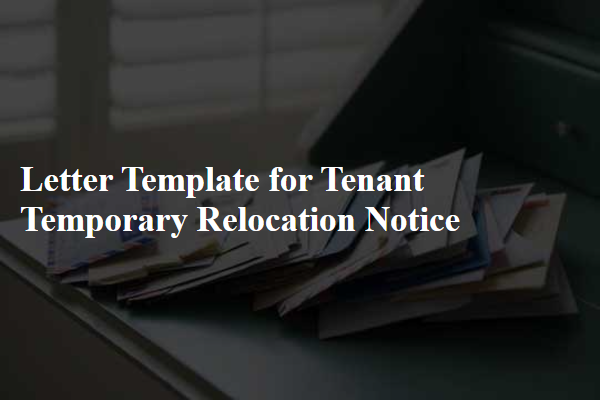
Date and Contact Information
Temporary relocation notices are crucial for ensuring tenants understand the circumstances necessitating movement from their current residence. The document typically starts with the date, which may indicate when the notice is issued. Followed by contact information, including the landlord's name, phone number, and email address, it provides essential dialogue channels. The notice outlines specifics such as the reason for relocation--whether due to renovations, emergencies, or mandatory compliance with local housing regulations. It often specifies the proposed temporary housing arrangement and duration, which could involve relocation to a designated apartment or hotel. Legal obligations and tenant rights might also be highlighted, ensuring that the tenants comprehend the implications of their temporary move.
Purpose of Relocation and Duration
Temporary relocation for tenants is often necessary when essential repairs or renovations are needed in a rental unit. The duration of this relocation can vary significantly depending on the scope of work, which may include plumbing upgrades, structural repairs, or safety enhancements. For example, if a tenant must vacate due to water damage, the repair process could take anywhere from several days to multiple weeks, depending on the severity. Communication regarding the purpose of the relocation is crucial to ensure tenants are informed about the necessary improvements, as well as the anticipated timeline for their return. Proper planning ensures that tenants' needs are met even during their temporary absence.
Temporary Relocation Address and Access
In situations requiring temporary relocation, tenants must be informed of their new accommodation details clearly. Notices should include the temporary relocation address, which may include street name, city, and any specific unit numbers for clarity. Access times should be designated, specifying which hours the tenant can enter the premises, often limited to business hours such as 9 AM to 5 PM. Important considerations could include furnishing information about any additional keys, security codes, or entry protocols necessary for accessing the temporary housing. It is crucial to communicate any transportation options available, such as nearby public transit options or designated parking areas, to facilitate the transition. Overall, communication must ensure tenants feel supported and informed throughout their temporary housing period.
Tenant's Rights and Responsibilities
Temporary relocation notices inform tenants about their rights and responsibilities during a period of displacement from rental properties, often due to renovations or repairs. Tenants should receive such notices at least 30 days in advance to prepare adequately for potential changes in living arrangements. Key responsibilities include maintaining communication with landlords regarding relocation logistics, updating contact information, and securing personal belongings. Additionally, tenants must understand their rights, such as the right to fair housing and the right to receive financial assistance if specified in local rental laws. Understanding local housing regulations, like the Fair Housing Act protections or specific tenant relocation ordinances, can empower tenants in navigating their temporary displacement effectively.
Contact Information for Questions and Support
Tenant temporary relocation notice requires clear communication regarding alternative living arrangements. For assistance, please contact the property management office at (555) 123-4567 or email support@apartmentmanagement.com. Office hours are from 9 AM to 5 PM, Monday through Friday. For urgent inquiries outside of these hours, reach the emergency line at (555) 987-6543. Further support is available through local housing services, including 211 for resource referrals. Ensure all your questions regarding relocation processes and timelines receive prompt attention to ease the transition.

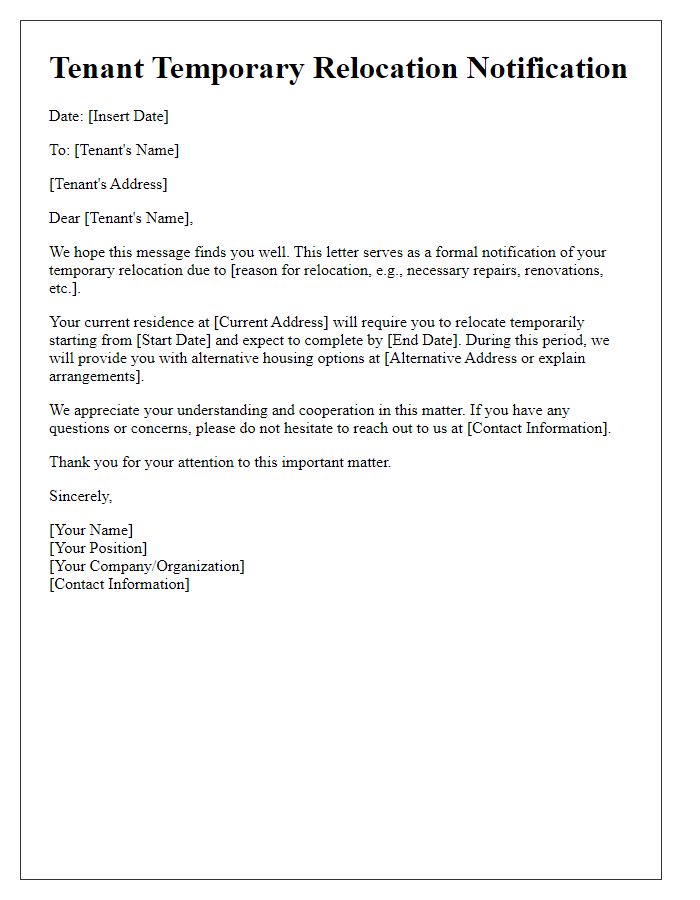
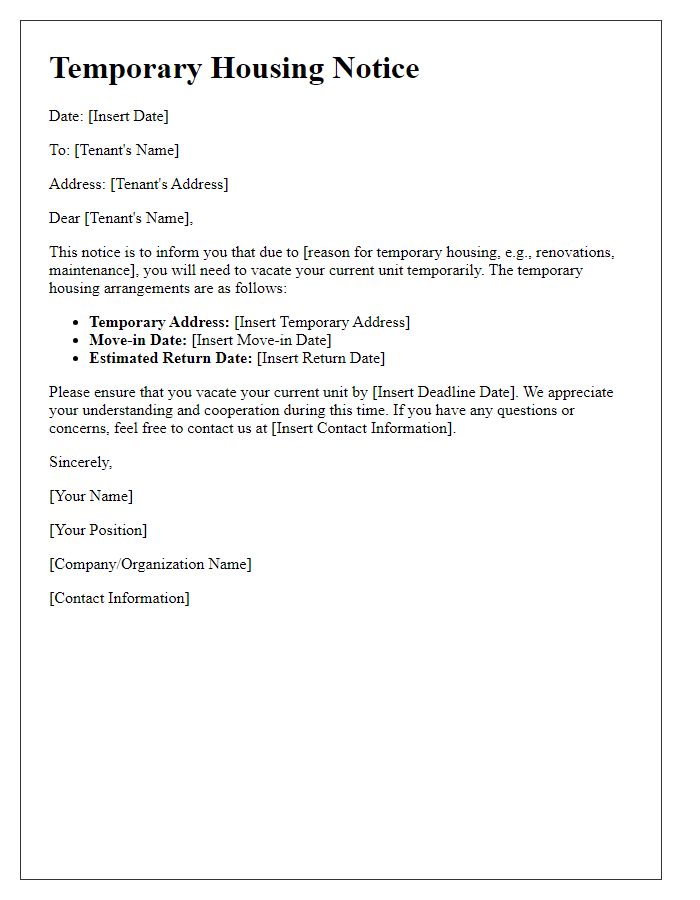
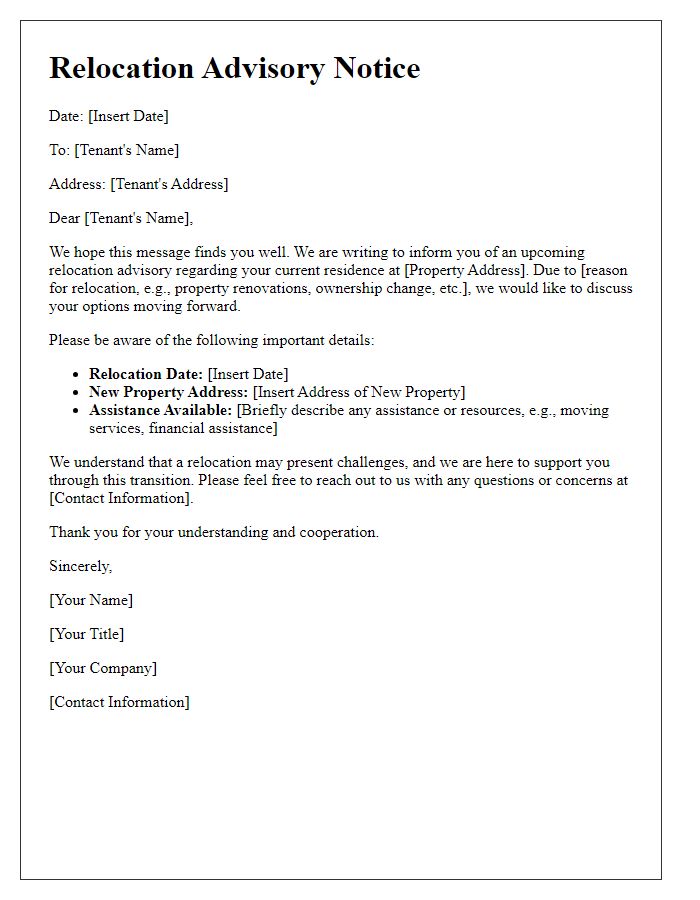
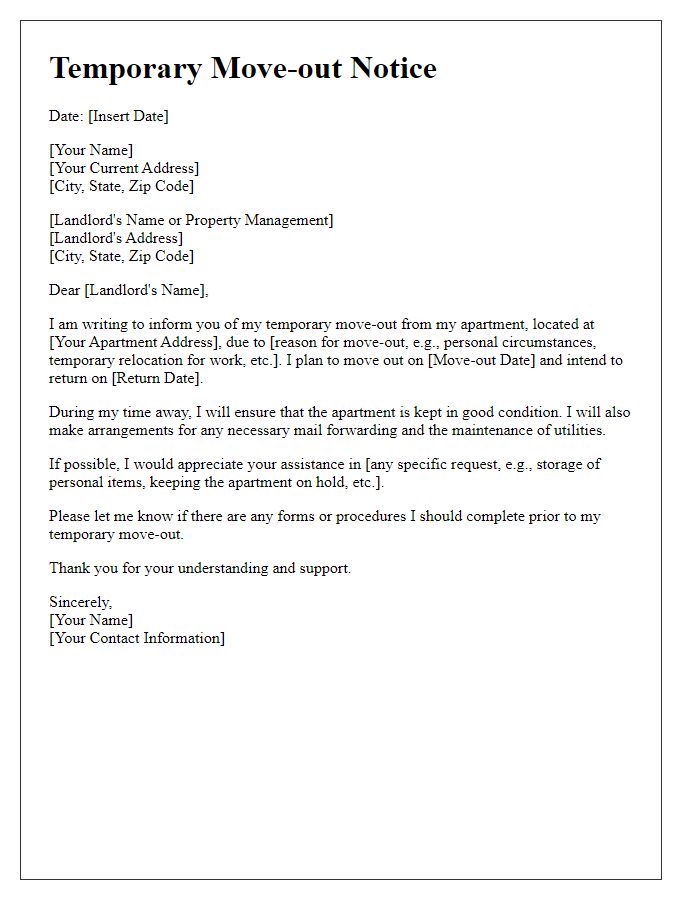
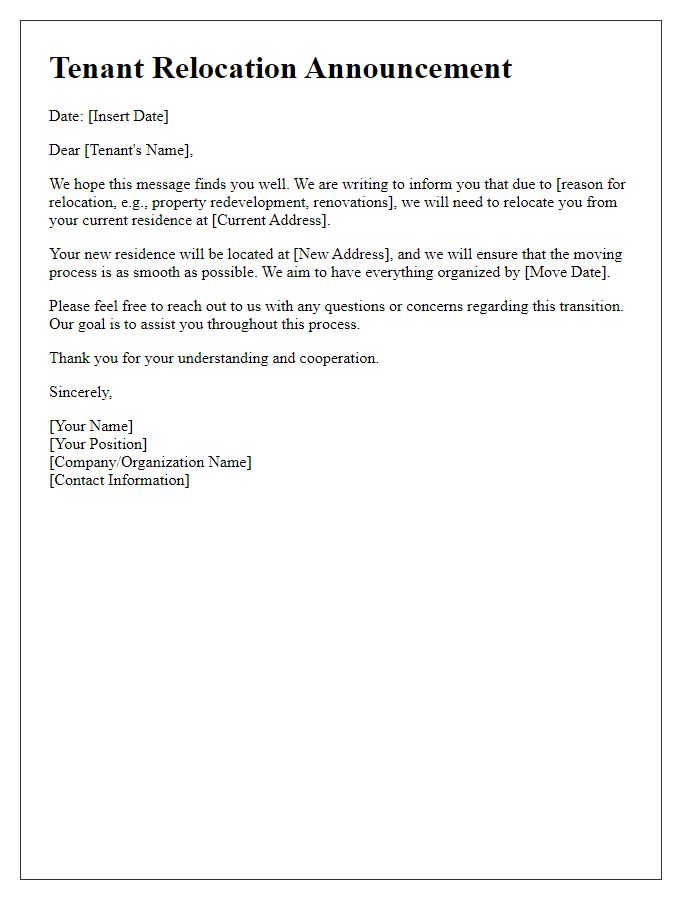
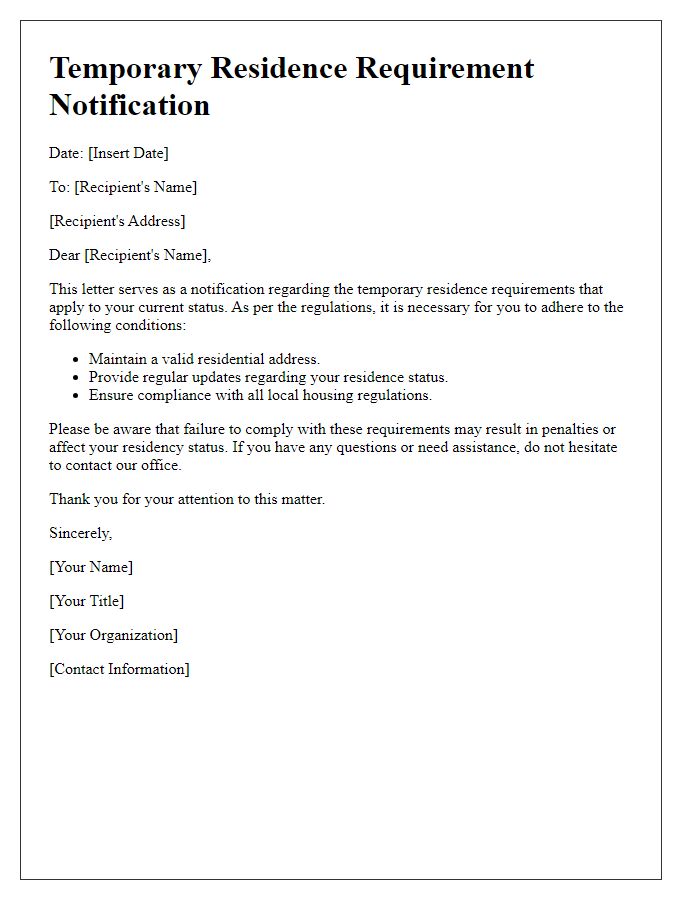
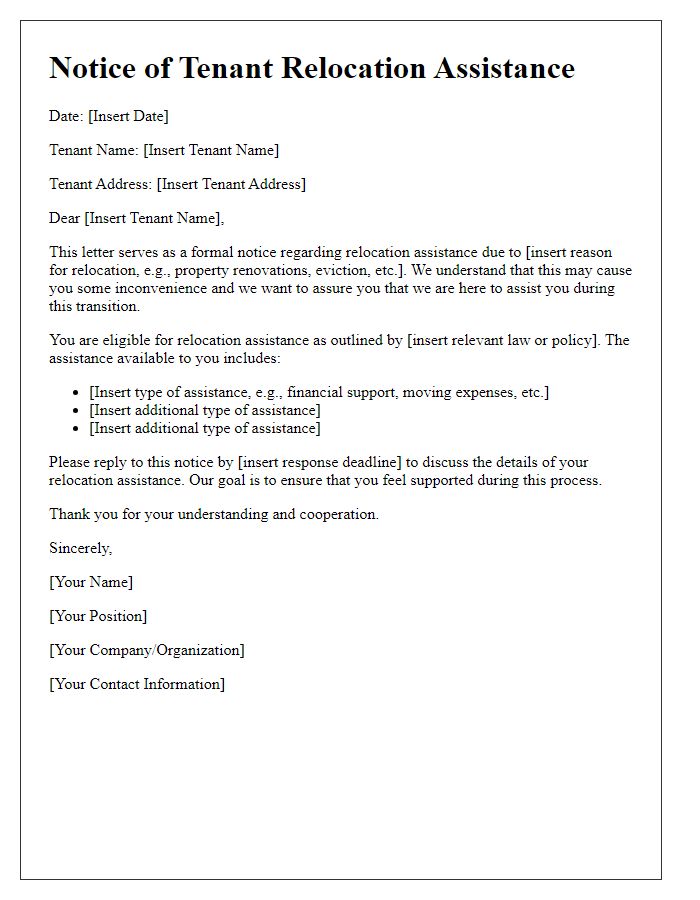
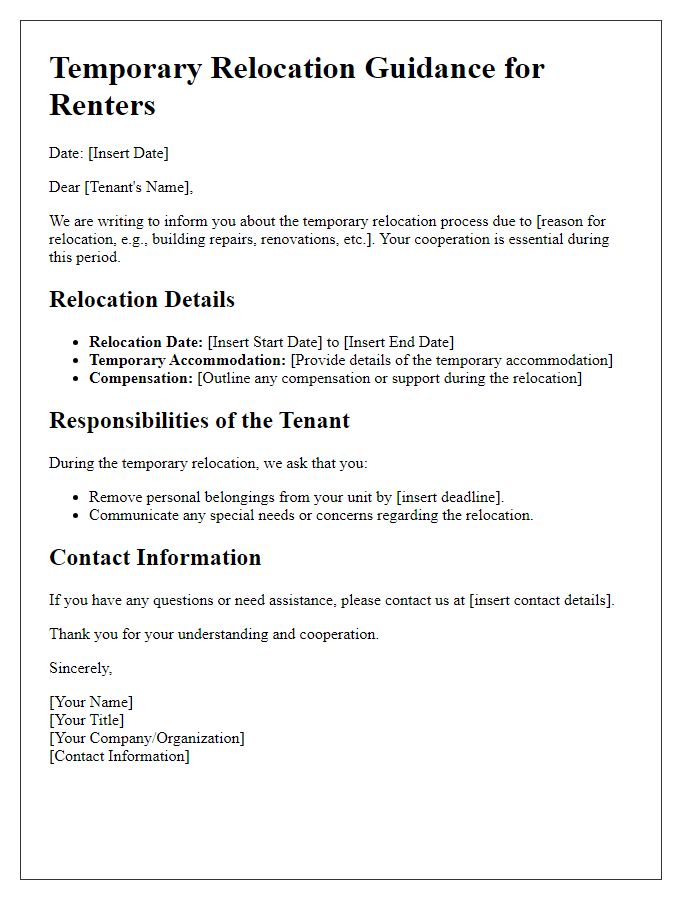
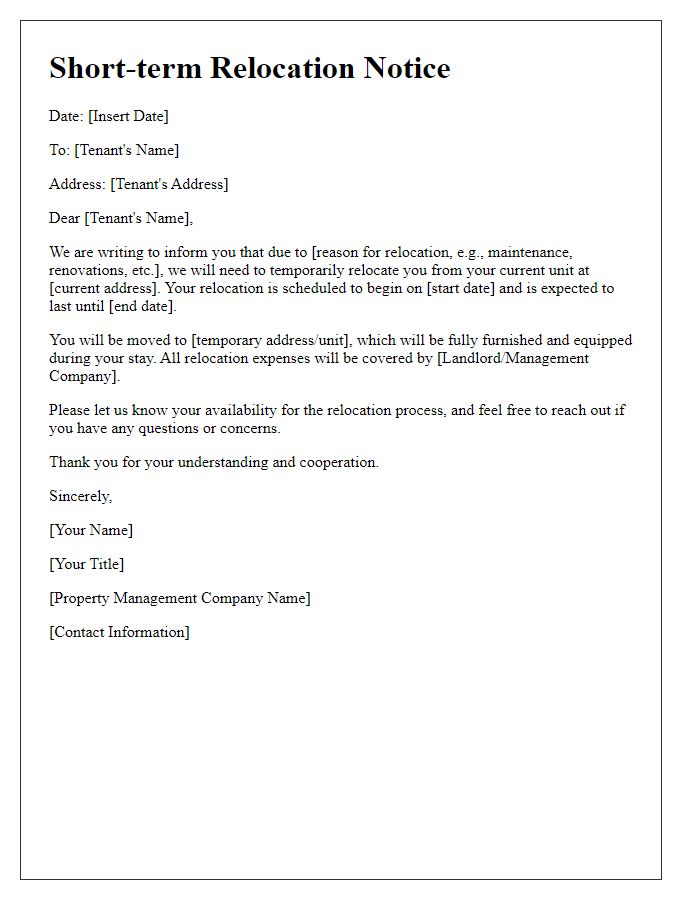
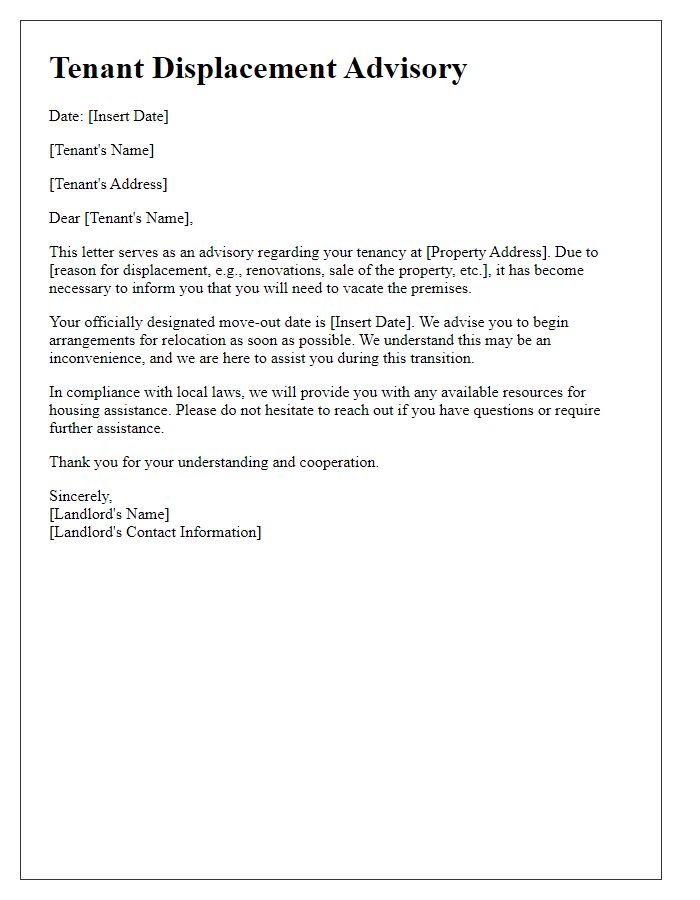

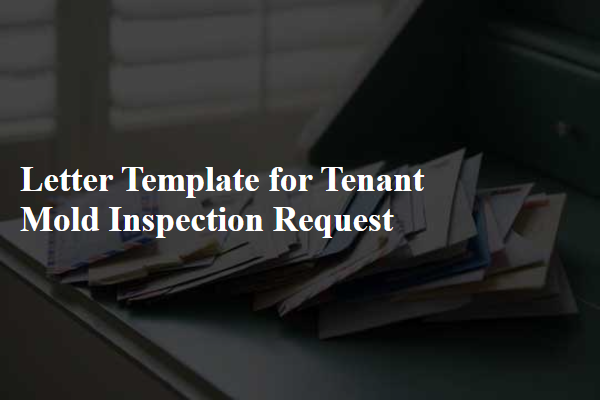
Comments